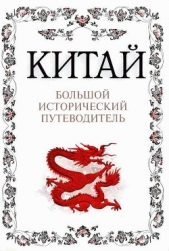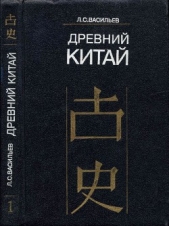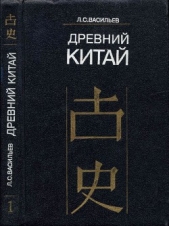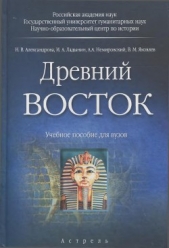Древний Китай. Том 3: Период Чжаньго (V—III вв. до н.э.)
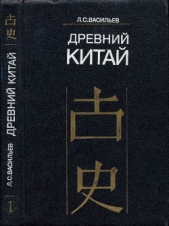
Древний Китай. Том 3: Период Чжаньго (V—III вв. до н.э.) читать книгу онлайн
Внимание! Книга может содержать контент только для совершеннолетних. Для несовершеннолетних чтение данного контента СТРОГО ЗАПРЕЩЕНО! Если в книге присутствует наличие пропаганды ЛГБТ и другого, запрещенного контента - просьба написать на почту [email protected] для удаления материала
One more important circumstance must be noted. During the Ch'unch'iu period, leaders of the pa rank (they were topmost among the chuhou rulers) used to prevent the stronger states from crushing the weaker ones, which was no longer the case. Having broken the fetters of feudal norms, rulers of the Chankuo period became ftill-fledged sovereigns of centralized states. Since their expansionist drive was now totally unchecked, they started pressing and crushing their neighbors, intending to weaken their armed forces and to annex desirable pieces of land. Free from feudal conflicts and internal strife, they were sometimes prepared to go to the stake for achieving their single aim: to defeat their equals in that struggle.
Instead of the tafu warriors and the ch'ing officials of the past, rulers of the Chankuo kingdoms had big armies and capable generals at their disposal. The latter were promoted for their personal merits and sometimes came from the ranks of the worthiest shih. Rulers consolidated their administrative apparatus by manning it with intelligent and capable shih. Unlike the feudal apparatus, it included those who — on account of having necessary qualifications — were capable of managing state affairs and who could be hired and dismissed like ordinary office workers. These officials of new kind were heading up new, gradually forming administrative-territorial structures that consisted of administrative units, not of feudal landed domains as earlier. Aristocrats continued to exist only as retainers and advisers of rulers and normally had to compete with clever administrators of the shih class, who sometimes hailed from different kingdoms. Who were the shih selected by rulers for this job? How, generally speaking, worked this new administrative class and what ideas formed its ideological basis?
Volume III pays attention to the exponents of a number of schools that competed with Confucianism, offering their own concepts of government. Mo-tzu was one of the earliest among them. He was born the year that Confucius died. He received his instruction from one of Confucius' disciples, and died in the late 5th century B.C. Having borrowed many ideas from Confucianism, Mo-tzu nonetheless differed with the Master on several vital points. Mo-tzu's primary concern was the creation of a society of equals. Loving one's parents and looking after one's children is not enough. One must love all people and look after them. Then the bonds of friendship would bind all the people together, and every man would always help his neighbor. Denouncing ancestor worship and hsiao (filial piety), Mo-tzu maintained that society must be free from both poverty and opulence, and that entertainment and exquisite pursuits available only to the chosen few are quite superfluous. Plain food, humble clothes, a small house and a simple tomb with a wooden coffin buried without elaborate and expensive funeral rites — this should suffice everyone.
Mo-tzu's fervent moralization is perfectly understandable, given the conditions of the defeudalized Chinese society, in which the pushy and greedy nouveaux riches (hsiao-jen) were eager to supplant the aristocrats who were quickly becoming history. The idea of taking property from the rich and distributing it evenly among the poor looked very attractive. So banal nowadays, it was quite fresh then. It seemed that Mo-tzu's proto-Socialist calls were supposed to stir society somehow and bring him a fair number of supporters. However, this never happened. People received his ideas with complete indifference. Firstly, the view that "blood is thicker than water" was both very popular and supported by tradition. Secondly, Mo-tzu's attempt to interest the authorities in his ideas (for which he devised an elaborate scheme of the administrative ladder, specifying the size of wages of officials on all levels and stressing that it was mandatory for them to inform against each other) failed, since it looked like a stupendous Utopia.
Mo-tzu sincerely intended to create a healthy, rational society of equals, with only a handful of those who would be "more equal" than others so as to make the functioning of the state possible. He vigorously condemned offensive wars that were waged quite often in his time. He wanted to achieve sensible government and good order, for which he encouraged among officials the practice of informing against each other. However, unlike Confucius, he despised tradition, and it was tradition that paid him back with a vengeance. Using tradition, Confucius brought about a revolution; rejecting tradition, Mo-tzu lost everything. The Taoist Chuang-tzu, giving his appraisal of Mo-tzu, remarked that the latter had no love for people — that was the whole point. This evaluation might seem unjust, on the face of it, for Mo-tzu's endeavors were devoid of self-interest. However, what really matters is the result, not the original motive — that was what Chuang-tzu meant.
The egocentric hedonist Yang Chu, a colorful if vague figure, was a direct opposite of Mo-tzu. Being a hedonist and a social parasite, Yang Chu asserted the priority of sensual pleasures and maintained that the only important thing was to spend the years granted you in comfort, because nothing but death awaits you beyond — the bones rotting in the dust that make the great and the humble equal. The actual role of Yang Chu's ideas is not quite clear. However, Meng-tzu — who decidedly condemned both Mo-tzu and Yang Chu — put them side by side, judging that their preposterous ideas were more or less equally harmful to the people.
A much more important part in the history of Ancient Chinese thought and in actual events was played by the followers of the fa school, the Legists. They had several factions and were successfully received among the ruling class. Shen Pu-hai (400–337 B.C.), a minister at the court of Han kingdom, held the art of masterful government supreme. He maintained that the ruler of the state should pick his words with care, avoid haste in his actions and control his feelings. In ruling the state he must rely on his numerous and carefully selected assistants, none of whom he nonetheless should trust completely. The ruler is the hub and the assistants, the spokes. The ruler must not demonstrate his wisdom needlessly. Besides, he must rule by exercising the wu-wei ("non-doing") principle; i.e., he must see, hear and know everything, but organize his government so as to allow events take the desired course naturally, giving them only the occasional corrective nudge. For all that, daily strict supervision and intelligent selection of personnel are an absolute necessity. Many of Shen Pu-hai's suggestions were subsequently taken into account. Suffice it to remind the reader about the competition system used at culling qualified officials. However, it was the rigid Legism of Yang of Wei, or Shang Yang (390–338 B.C.), that played a far greater part in the history of Ancient China and Chinese civilization as a whole.
Shang Yang was a relative of the ruler of the Wei kingdom; he came to Ch'in at the request of Ch'in's ruler Hsiao Kung, who dreamed of reforming and radically strengthening his vast, though sparsely populated and semi-barbarian state. The essence of Shang Yang's reform — which was decently expressed in his treatise and even better demonstrated in the course of the radical changes he started (they were described in the historical work of Ssu-ma Ch'ien) — is that the people ought to be ruled with a rod of iron. Initially, the reform involved only double taxation exacted from families having more than one grown man in order to force such families to move and settle uncultivated lands. Then the Ch'in authorities published the law that invited immigrants from different, overpopulated states of Chungkuo (the "Middle Kingdoms") to Ch'in, providing fairly favorable condition for them. Generally speaking, laws — i.e., orders given by the authorities — were to become the main tool of ruling the people. Failure to obey laws (it was officials' duty to circulate their main idea among the people) entailed punishment. Shang Yang prescribed severe punishments even for trifling offences so as to discourage people from transgressing seriously, with a view to eliminating grave crimes in Ch'in. Conduct of the people must be strictly controlled and its efforts must be channeled into "productive occupations", i.e., farming and soldiering. The pao-chia system that incorporated small groups of five and ten families, each headed by a responsible appointee, involved the practice of mutual help — and also of mutual spying. Everyone was responsible for everyone else. Warriors were rewarded for military exploits. Reward found expression primarily in the system of socio-administrative ranks (there were normally 18 to 20 of them) created by Shang Yang and currently well-known all over the world. The lower ranks of that system were assigned among villagers. You were born, married, procreated a child, became the head of a large family, the patriarch of a group of kindred families, you were elected or appointed the head of a pao-chia or a community — all these phases of your life correspond to ranks 1–8 of the system. Higher ranks were assigned bureaucrats and soldiers for their service and special merits. Ranks higher than the 8th one normally entailed a position with a good wage, while the holders of the top ranks were often granted, as part of their office, the privilege to live at the expense of local population.
